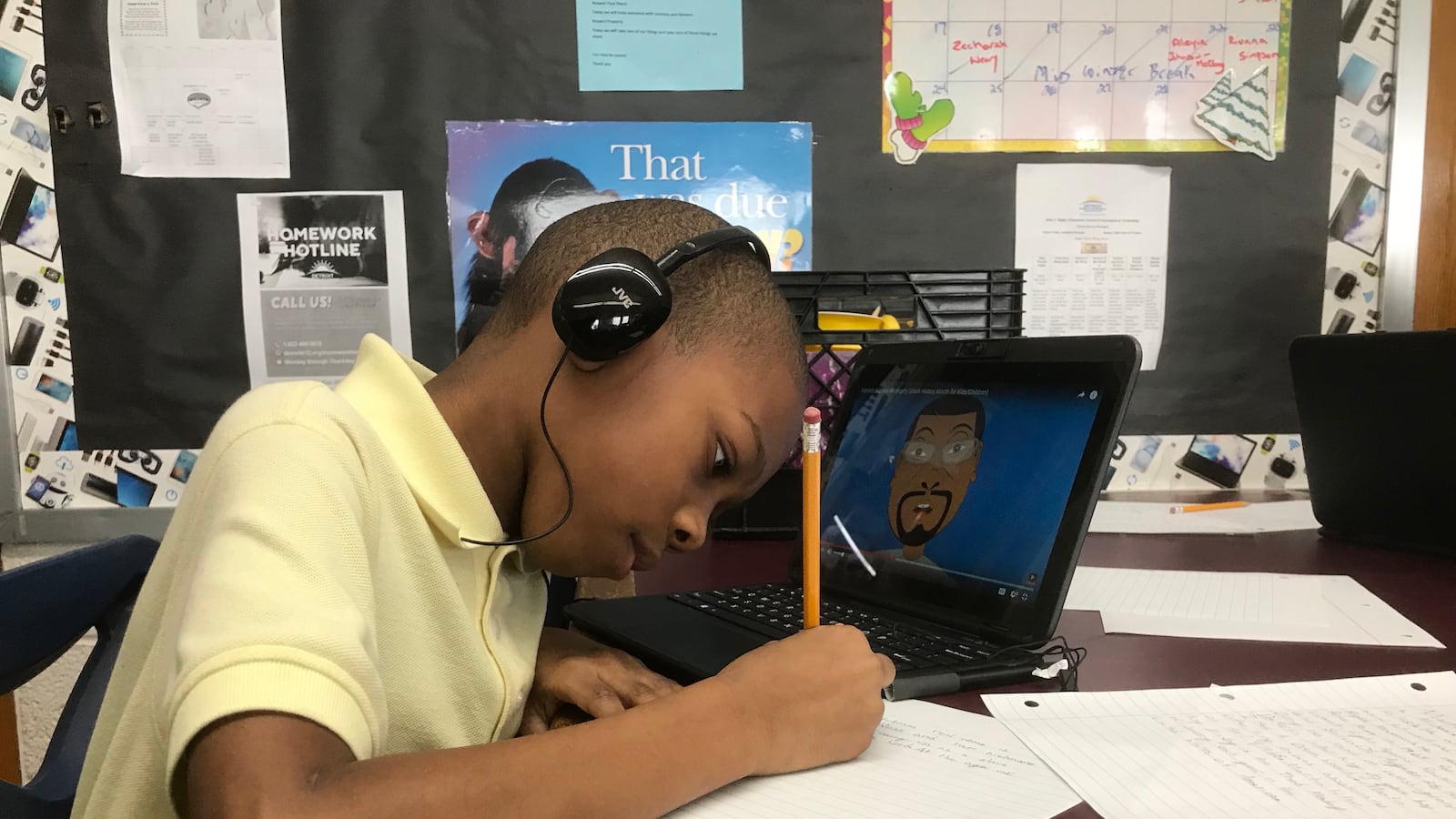By the end of the next school year, every student in grades K-8 in the Detroit school district could have ready access to a laptop every day at school — through the expansion of a pilot program that is giving students in the city access to the kind of technology their peers in the suburbs have.
That kind of equity can be crucial in a city where many residents struggle to gain access to technology.
“I want my students to have the same tools, the same playing field as their counterparts. That’s what makes it equal to me,” said Dorian Roberts, who teaches technology, journalism, honors English language arts and social studies at Bagley Elementary School of Journalism and Technology.
Bagley is among 25 K-8 Detroit schools that over the last year and a half have been part of a pilot initiative that ensures every student would have in-school access to a laptop throughout the day, in every class – and provides additional technology to teachers, such as interactive monitors.
Now, Superintendent Nikolai Vitti wants to expand the initiative districtwide. He’s proposing spending nearly $16 million in federal funds to add 46 schools to the 1:1 Technology Initiative.
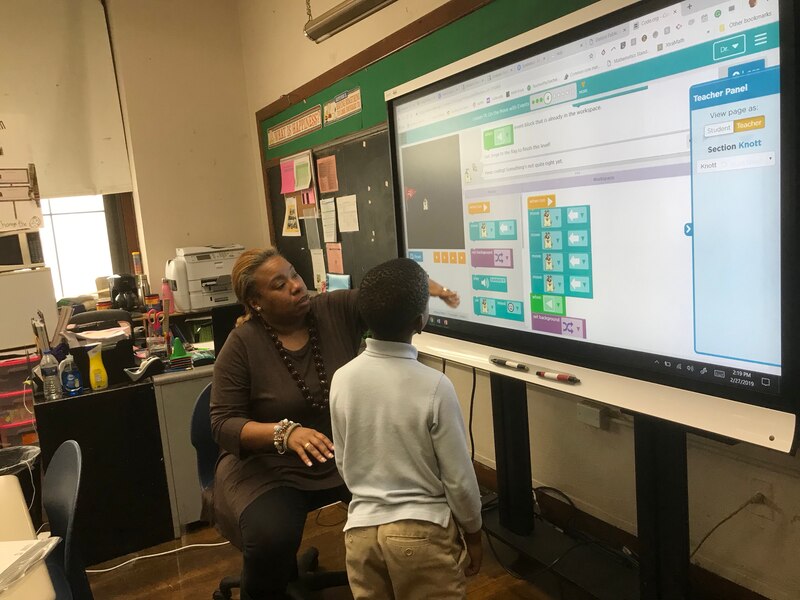
During a recent board of education committee meeting, Vitti raised the issue of equity.
“Access to a laptop, I think, is essential for our children to compete,” Vitti said. “Today’s child has to compete at a global level with children that are using laptops and using devices at early ages and our children aren’t necessarily doing that.”
His comments came in response to a question from board member Sonya Mays, who chairs the finance subcommittee. She told Vitti that she supports the initiative, but she wanted to know why the pilot should be expanded and what the research says about technology.
“I’m reading some things that are mixed, that some districts are moving away from the digital learning and going more traditional,” Mays said.
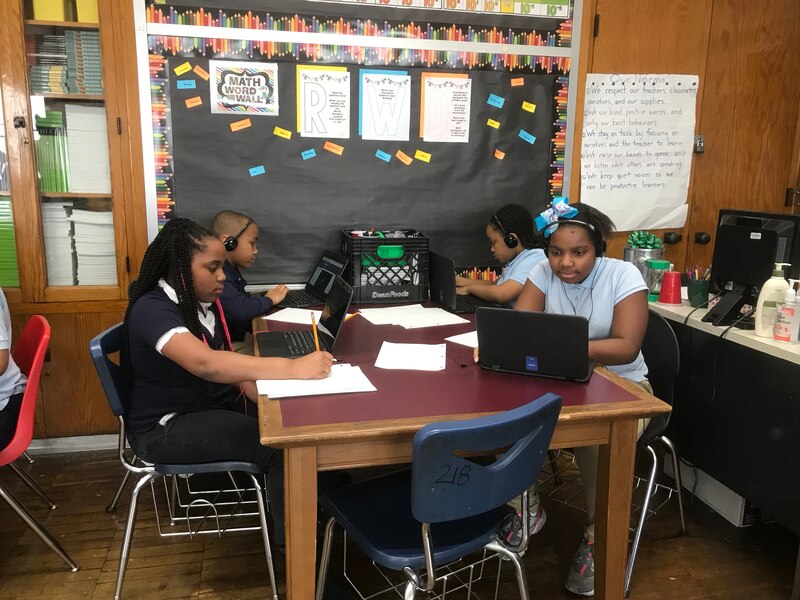
Vitti said that technology is “no silver bullet,” and noted that nothing is better than great teaching when it comes to improving student achievement.
The laptops are for use in school, and can’t be taken home. What the district has found from the pilot is that students report they’re more engaged in class, Vitti said. Roberts has seen that firsthand at Bagley. Her students have embraced the technology.
“They take it and they run,” she said.
For a Black History Month social studies project, Roberts assigned students to research historically black colleges and universities. She was surprised that many used technology to find non-traditional ways — such as using Google Hangouts to interview alums — to conduct their research. Roberts said it’s an example of how students are taking more ownership of their learning.
Roberts said more readily accessible technology has improved the quality of assignments students turn in and has fostered creativity and collaboration.
“If I can get you engaged, I can do anything. I can teach anything.”
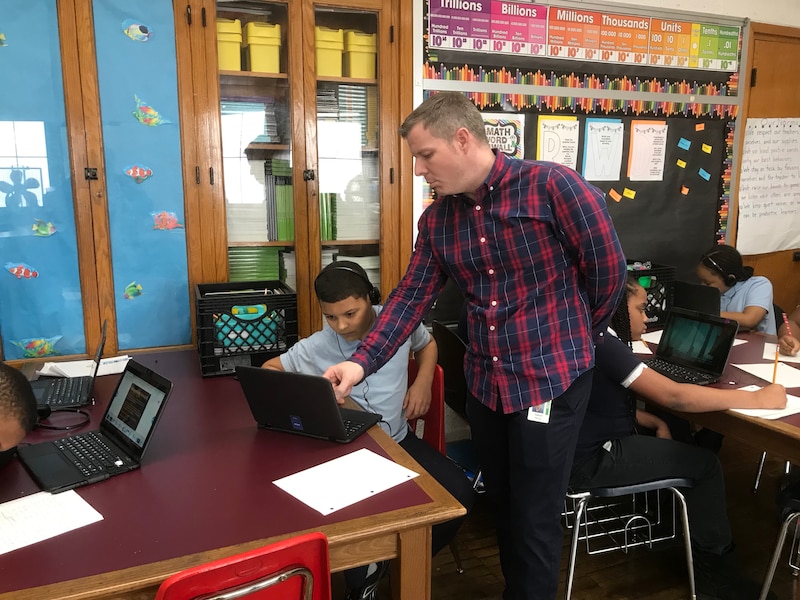
And, you can go anywhere. In Steven Sutton’s fourth-grade social studies class one day last week, students were quietly researching online, trying to find out as much information as they could about Harriet Tubman and Martin Luther King Jr. for a Black History Month assignment. They’d already “visited” a national King memorial.
“I can go to Washington, D.C., without ever leaving the classroom,” Sutton said.
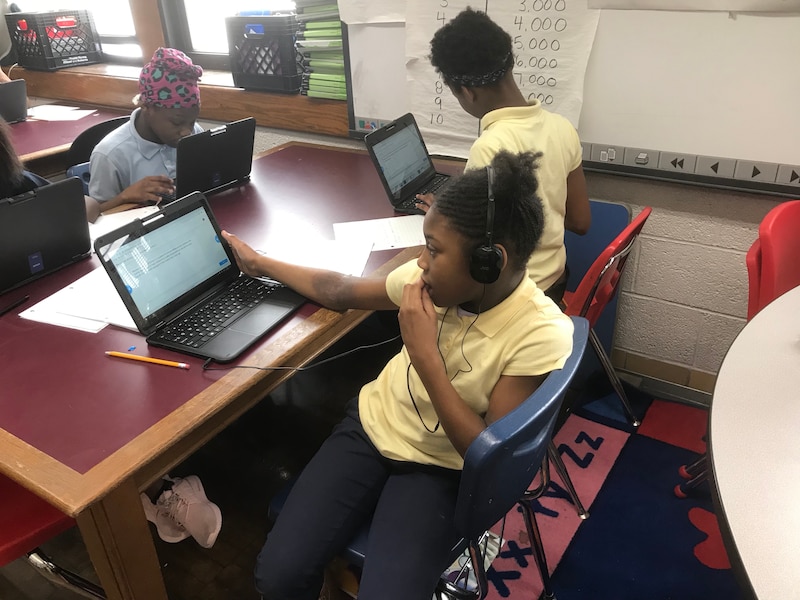
Technology involves other lessons as well. Roberts talks to students about being safe and smart online, reminding them that what they put on the internet will often live there forever, even if they delete it. She tells them that before hitting send, they should ask themselves “is this the footprint that I want to leave in the digital space?”
Roberts teaches coding to the youngest students at the school, and is surprised by the level of sophistication she sees in some students. One girl, she said, lights up every time she’s writing code.
“It’s like she’s making her own symphony with the computer.”

